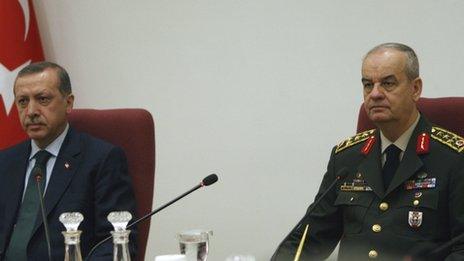Turkey 'coup' trial delayed amid angry protests
- Published
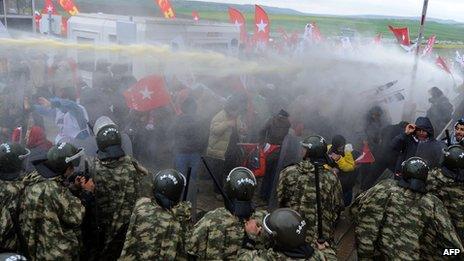
The clash is another sign of tensions over Turkey's secularist institutions
The high-profile trial of 275 alleged coup plotters in Turkey has been delayed after police clashed with angry crowds outside the court near Istanbul.
Officers fired water cannon and tear gas to disperse thousands of protesters, with some of the gas leaking into the courtroom.
Many demonstrators waved Turkish flags and chanted anti-government slogans, showing solidarity with the defendants.
The "Ergenekon" plot allegedly aimed to topple the AK Party government.
Since Prime Minister Recep Tayyip Erdogan came to power, heading an Islamist-rooted movement, hundreds of military officers - serving or retired - have been arrested.
The investigations have undermined the traditionally powerful influence of the military in Turkish politics.
They also illustrate the deep divisions between secular nationalists - who see themselves as the heirs of the country's founder Mustafa Kemal Ataturk; and supporters of the government - who want to reduce the role of the military and make more room for the public practice of Islam, says the BBC's James Reynolds in Istanbul.
It is not yet known when the hearing will resume, our correspondent says.
Politically motivated?
Thousands of people, from several towns, started arriving by coach very early on Monday to support the defendants at the prison-court complex in Silivri.
Protesters shouted, "We are the soldiers of Mustafa Kemal!". They said the four-year long trial was unfair and politically motivated.
Some tried to tear down police barriers in front of the courthouse.
Correspondents said the whole complex was under a cloud of tear gas, and it even leaked into the courtroom, where the hearing was interrupted with arguments about who could sit where.
Retired armed forces commander Gen Ilker Basbug is among the defendants, along with a number of military officers, politicians, academics and journalists.
Prosecutors have demanded life imprisonment for Gen Basbug and 63 others, including nine other generals.
They are accused of links to an ultra-nationalist secret network called Ergenekon, which allegedly tried to foment chaos and trigger a military coup to oust the AKP. Mr Erdogan has been in power since 2002.
Critics say there is little evidence for the charges and accuse the government of trying to silence its secularist opponents.
In a separate trial last September three former army generals were sentenced to 20 years in jail each for plotting a coup against the AKP.
Nearly 330 other officers - including some senior military figures - were also convicted over the "Operation Sledgehammer" plot.
Turkey's military has long seen itself as the guarantor of the country's secular constitution.
It staged three coups between 1960 and 1980 and has a history of tension with the AKP.
- Published22 August 2023

- Published5 August 2013
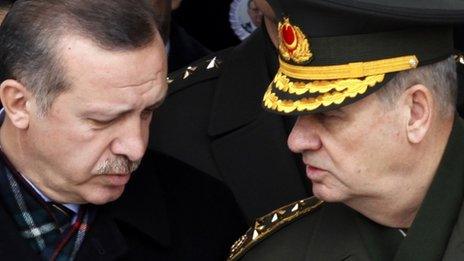
- Published21 September 2012
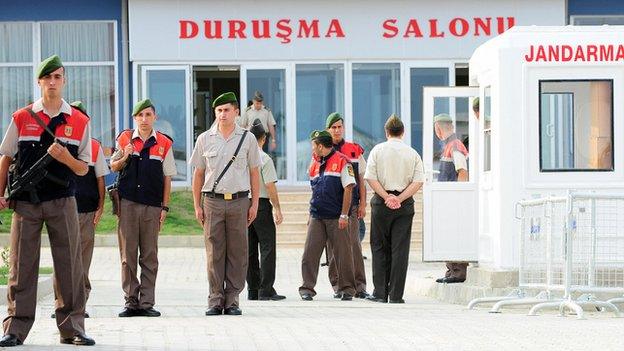
- Published26 March 2012
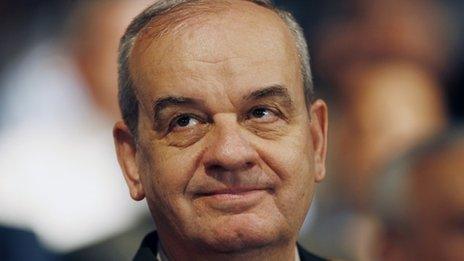
- Published5 August 2013
